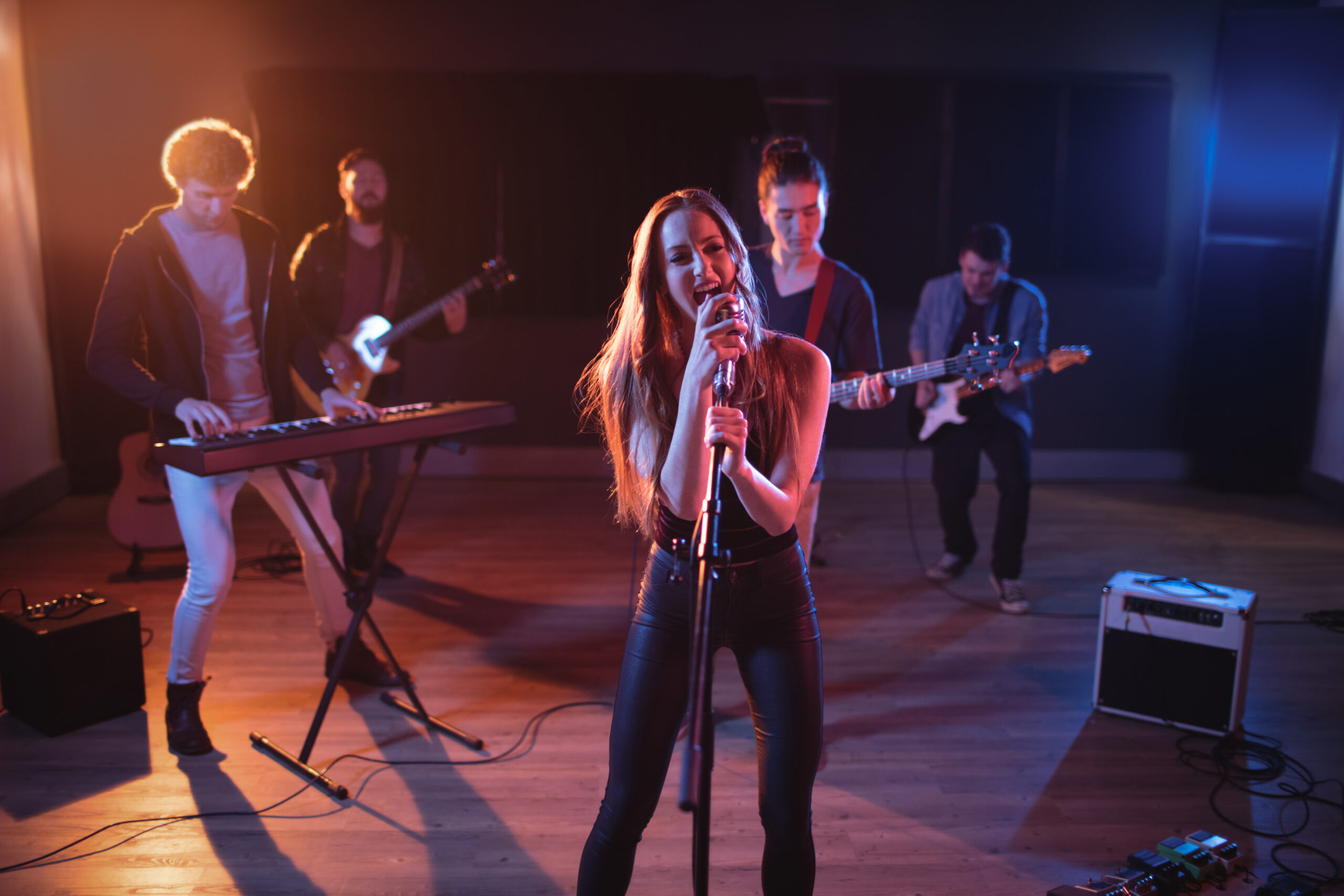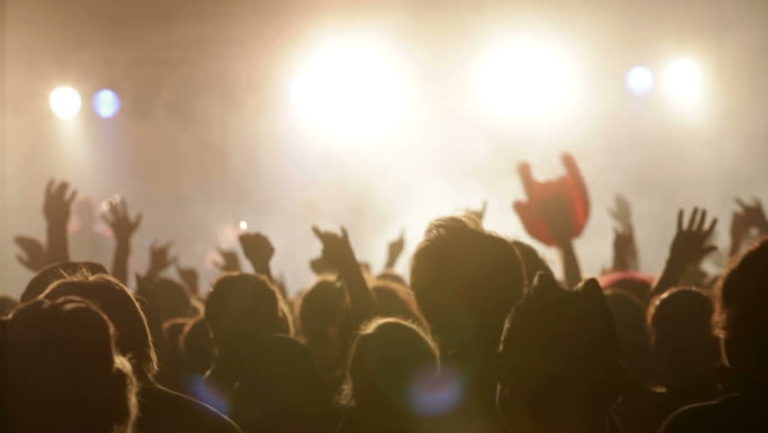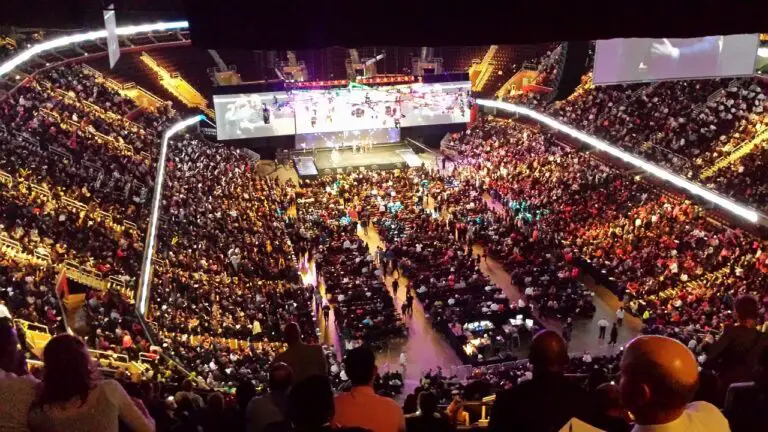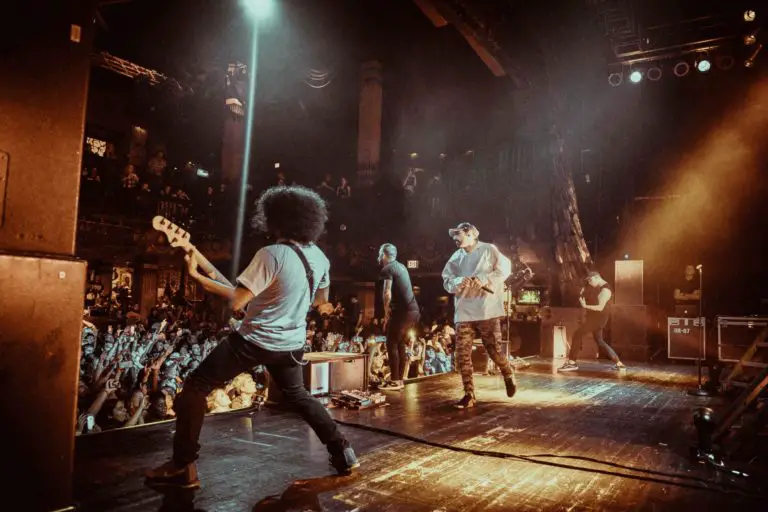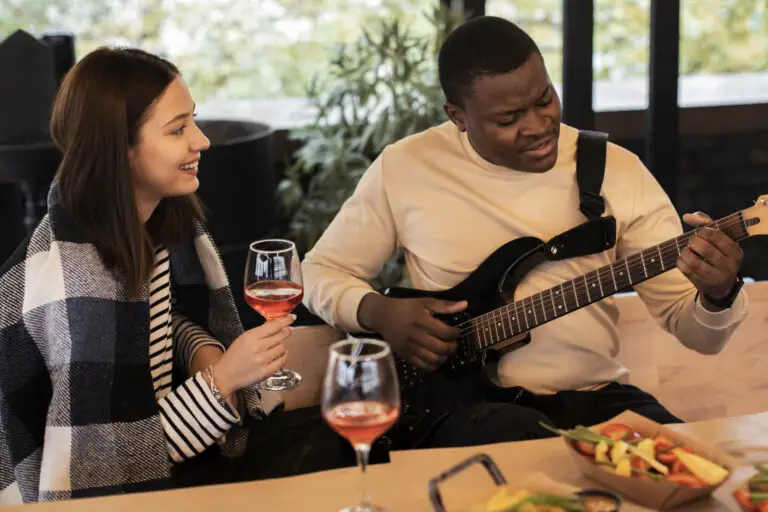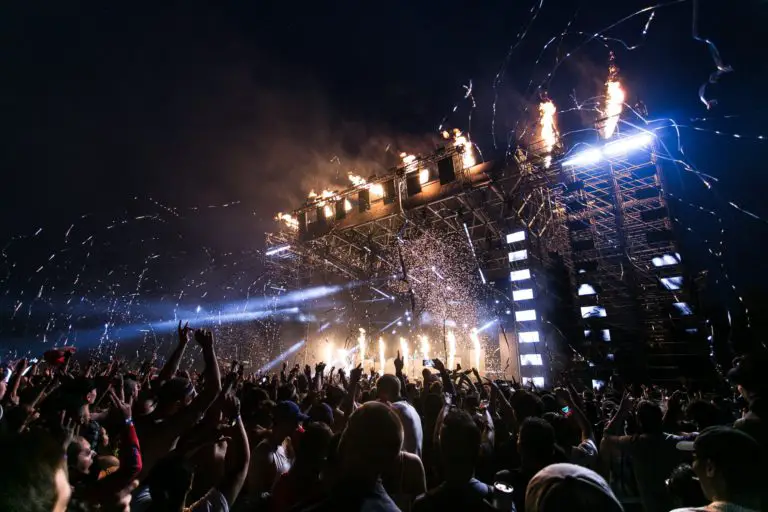What Do Concert Roadies Do?
Everyone thinks they know what roadies do when on tour. You go to a show and hear the “1-2,1-2 check ” followed by big power chords and that’s all there is. Seems like an easy job to do right?
Roadies take care of everything concerning the live show, such as setting up and packing down all equipment, controlling light and sound settings, as well as coordinating the band’s transportation.
Indeed, life on the road looks much harder when you see what’s involved. It’s a job that takes plenty of hands to get everything moving day after day.
Roadies are not just one trick ponies, and team members won’t just be specialists in one particular area.
What Is A Roadie?
Generally speaking, anyone referred to being a roadie is someone who works as part of the road crew on a tour, regardless of their role.
Many think that a roadie would be someone playing and setting up guitars before the show starts. However, that’s not always the case. Indeed, the entire road crew will be made up of a entire team of individuals.
It will even include the tour manager themselves, but will extend to all instrument technicians, stagehands, effects crew as well as the drivers on tour.
In essence, it means anyone working on the tour outside of a band could be considered a roadie. But whatever their role is, the crew works together tirelessly to ensure that a live show goes off without a hitch.
What Do Roadies Do?
For roadies, days can be long and arduous. Many expect it to surpass the conventional eight-hour working day that many might be used to.
If the shows have an elaborate set-up, some crew members may be accessing the venue days before or after the show itself. Most of this time would be used putting together big staging, rigging everything together and testing it before tearing it down once a show has finished.
But if it’s a one-day show, then the road crew will be in for an early start. Most of the crew will be in before 9 AM, loading all the gear into the venue and just putting the basic constructs together. This on its own can take several hours.
By early to mid-afternoon, it will be connecting up amplifiers, setting up each rig and making sure everything is working. During this time, the stage techs will be syncing up lighting patterns and media screens, and testing pyrotechnics making sure it all works. This is the pre-test to get the initial setup right.
With just a couple of hours before the first act starts, the band will do a quick soundcheck playing a few songs to make sure they are happy with everything. If this is good, then it gives the crew a bit of a break.
As the show progresses, instrument technicians will be on set to help do last-minute checks before the band takes to the stage and also help if they encounter any problems during the performance.
Once the show ends, crew members are then back to full working capacity, dismantling the stage and packing everything back in the trucks before hitting the road. However, it can easily be 2 or 3 AM before they get moving from the venue itself.
What Type Of Roadies Are There?
Mmany of the “roadies” are craftsmen skilled in different areas of the touring aspect. But what are the different types of road crew members that you might come across?
Instrument technicians
These are the most common “roadie” stereotype that comes to mind. Instrument technicians are there to ensure that the instruments sound perfect when they are played. You will find specialist techs assigned to each different instrument being played. This includes:
- Vocals
- Guitars
- Bass
- Drums
- Keys
What you will also find is that each technician will be assigned just one band member to look after. By doing this, it becomes the tech’s responsibility to get everything right. This includes basic tuning, setting effect pedals and dialing in amps to make sure everything sounds crisp.
Lighting Technician
Lighting technicians will be in hours before the show starts. Not only do they plug and test all the lights before the show, but they also set timing patterns to try and choreograph it to the music itself. It also involves liaising with the media and production crew to ensure that lighting doesn’t interfere with their creations.
Production Crew
One lesser known part of the road crew is those involved with the production elements of a show. This includes everything from images on screens to what cameras show if it is being filmed. If you go to a larger show, it will be the production crew who are responsible for getting all the media and effects set up during the gig itself.
Their work will also begin days if not weeks before a show starts as well. That’s because they may need time to put films and images together so they can test media and ensure it is bug-free before the tour itself starts.
Tour Manager
The tour manager is the head honcho of the tour itself. It is generally their responsibility to make sure everything on tour goes off without a hitch. It means they are the overseer of what roadies do before during and after the show.
Not only does the tour manager look after the band, but they are logistically in charge of everything. That includes looking after everything at the venue, bringing in local help and making sure everything runs on time. It’s a tough role that requires all eyes and ears to be on standby.
How To Become A Roadie
Becoming a roadie isn’t something that everyone falls into. It really depends on who you know. But don’t think it’s a closed industry, having several key skills will help you get noticed.
Experience is key
More than anything, the key to being a good roadie is having experience in your specialist area. The more of this you have, the more you can contribute to getting everything right first time. This is something noted by Dr Gabi Kielich, Senior Research Fellow of Music and Design Arts at the University of Huddersfield, who authored The Road Crew: Live Music And Touring looking at the lives of road crew members on the road.
“Experience is regarded as very important to being on a road crew,” Kielich explains. “This is due to the specificities and demands involved in working in live music and on tour.”
As roadies gather more experience, it helps them find their specialist role on tour. It’s something that Dr Kielich noticed when doing her research, and that specialization on roles or instruments takes time.
“Many road crew members do multiple roles when they start out and specialise later on,” she explains. “It can be beneficial to be able to do multiple roles, especially early on as it creates the possibility for more job opportunities.”
Building relationships
One thing that people realize about what roadies do is how they build bridges with particular artists. When on tour, some crew members will work very closely with the artists themselves. This enables them to build strong bonds with them the more they work together.
Building strong links gives a crew member a stronger chance of working with an act again when they go touring again.
Becoming more familiar with certain acts will then make the setup process that much easier as they embark on more tours.
This pattern was something that Dr Kielich noticed as she learned that roadies would often switch between acts during recording and touring cycles.
“Road crew members often work for several bands/artists at the same time,” Kielich reveals. “They tour with one while the other is recording, and so on, for extended periods of time.”
Final Thoughts
By now, it’s clear to see that a lot of hard work goes into being a roadie. The possibility of working long hours and hard physical exertion counteracts the easy nature many might have in mind. But being a roadie is more than just playing with guitars. It encompasses everything from lighting to media production or overseeing the whole operation.
It’s why being versatile and having experience is key to what roadies do. Gaining these skills is vital when on the road, especially when doing it for the first time. However, the more experience you get helps build relationships, which is key to getting more work. It’s why all these aspects come together to put on a great show when in sync.
Special thanks to Dr Gabi Kielich. Her book The Road Crew: Live and Touring is available on Amazon

